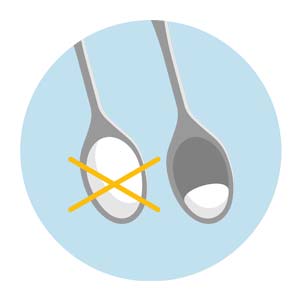Healthy Living
Six Tips for Good Gut Health
There are millions of bacteria inside our gastrointestinal tract, and the balance of these bacteria does more than aid digestion. Gut health connects to skin condition, the immune and endocrine systems and mental health.
The gut covers the entire digestive system, from the esophagus to the bowel. Having a healthy gut means having a healthy gut wall that prevents harmful bacteria from entering the bloodstream. And this means we are less likely to experience bloating, loose stools, constipation, heartburn, nausea, vomiting, skin irritation and even bad breath or halitosis. The gut, also known as the “second brain,” has a significant impact on our mental health. Gut bacteria can stimulate our nervous system and send messages to our brain, which is why we can feel emotions in our gut.
The balance of our gut bacteria and a diverse microbiome can impact our overall health. Here are six tips for good gut health:
 1. Eat fermented foods Fermented foods are rich in lactobacilli, a bacteria that can benefit our health by improving intestinal bacteria. This type of food also increases bacteria diversity in our guts. Fermented foods include yogurt, kimchi, sauerkraut and kombucha. Consider kefir instead of milk in smoothies or miso as a base for soups or sauces instead of broth. |
 2. Eat a wide variety of produce Having a diet with a wide variety of fiber, starches, and other nutrients feeds a wider variety of bacteria, resulting in a more diverse gut microbiome. |
 3. Eat whole grains Whole grains contain carbs that are not absorbed in the small intestine, which proceed to the large intestine. These carbs that make their way to the large intestine promote the growth of beneficial bacteria in the gut. |
 4. Add fish to your diet Researchers found out that people with salmon or cod in their diet have an increased drop of gut bugs called Bacteroidetes, higher levels of good fats, and a more diverse gut microbiome. |
 5. Consume tea or coffee Polyphenols, plant compounds found in coffee and tea, increase the beneficial bacteria that protect the gut’s inner lining. |
 6. Go easy on artificial sweeteners and food additives Artificial sweeteners and additives such as cellulose gum can interfere with the body’s ability to absorb sugar which can cause gut inflammation and associated diseases. |
The balance of our gut’s bacteria and a diverse gut microbiome plays an important role in our overall health by helping with digestion, improving our immune system, and helping manage our emotions. This can be achieved without supplements, fortified foods or microbiome tests.
Sources:
Healthline
Livescience
AARP



